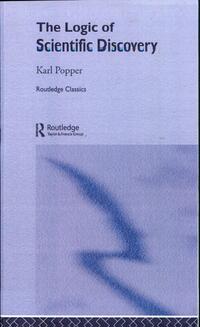- Έργο (αυτοτελές έργο)
- 40. Ιστορία της Ευρωπαϊκής φιλοσοφίας
- Έργα σχετικά με τα πρόσωπα ψηφιακής βιβλιοθήκης
- 1934
- Γερμανικά
- Επιστήμη | Φιλοσοφία της επιστήμης
- Popper, Karl R. (Karl Raimund) (1902-1994)
- Aus dem Postskript zur Logik der Forschung
- Austria
-
- Q1868040 ⟶ Wikidata
-
- 185076201 ⟶ VIAF
-
-
Popper argues that science should adopt a methodology based on falsifiability, because no number of experiments can ever prove a theory, but a reproducible experiment or observation can refute one. According to Popper: "non-reproducible single occurrences are of no significance to science. Thus a few stray basic statements contradicting a theory will hardly induce us to reject it as falsified. We shall take it as falsified only if we discover a reproducible effect which refutes the theory". Popper argues that science should adopt a methodology based on "an asymmetry between verifiability and falsifiability; an asymmetry which results from the logical form of universal statements. For these are never derivable from singular statements, but can be contradicted by singular statements"
⟶ Wikipedia
-
-
-
The Logic of Scientific Discovery is a 1959 book about the philosophy of science by the philosopher Karl Popper. Popper rewrote his book in English from the 1934 (imprint '1935') German original, titled Logik der Forschung. Zur Erkenntnistheorie der modernen Naturwissenschaft, which literally translates as, "Logic of Research: On the Epistemology of Modern Natural Science"'
⟶ Wikipedia
-
- Q175.P863


